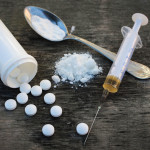A brief counseling intervention improved abstinence from alcohol among Vietnamese men with HIV who drank to a hazardous extent and also improved their viral suppression rate, Healio reports.
Vivian F. Go, PhD, a professor of behavioral health at the University of North Carolina at Chapel Hill Gillings School of Global Public Health, and her colleagues conducted a three-group randomized study that included 440 people receiving antiretroviral treatment for HIV at seven clinics in Thai Nguyen, Vietnam.
Ninety-seven percent of the participants were men. All were considered to drink to a hazardous extent, defined by their score on the Alcohol Use Disorder Identification Test.
A total of 146 participants were randomized to receive the standard of care. Otherwise, 147 people each were randomized to the two intervention groups. One group received six in-person group counseling sessions and three optional group sessions that provided an intervention grounded in combined motivation enhancement and cognitive behavioral therapy techniques. The other intervention group received two in-person sessions and two telephone sessions. All sessions were brief and based in motivational enhancement and cognitive behavioral therapy.
As described in JAMA Network Open, a year after the randomization, the proportion of days spent abstinent to alcohol was 65% among those in both intervention groups, compared with 50% in the standard-of-care group.
Additionally, those in the brief intervention group had an 11% higher rate of viral suppression compared with the control group. There was no significant difference between the longer intervention group and the standard-of-care group on this measure.
“These findings support the use of the brief intervention in antiretroviral therapy clinics to reduce alcohol use and increase viral suppression in this high-risk population,” the study authors concluded.
To read the Healio article, click here.
To read the study, click here.







Comments
Comments